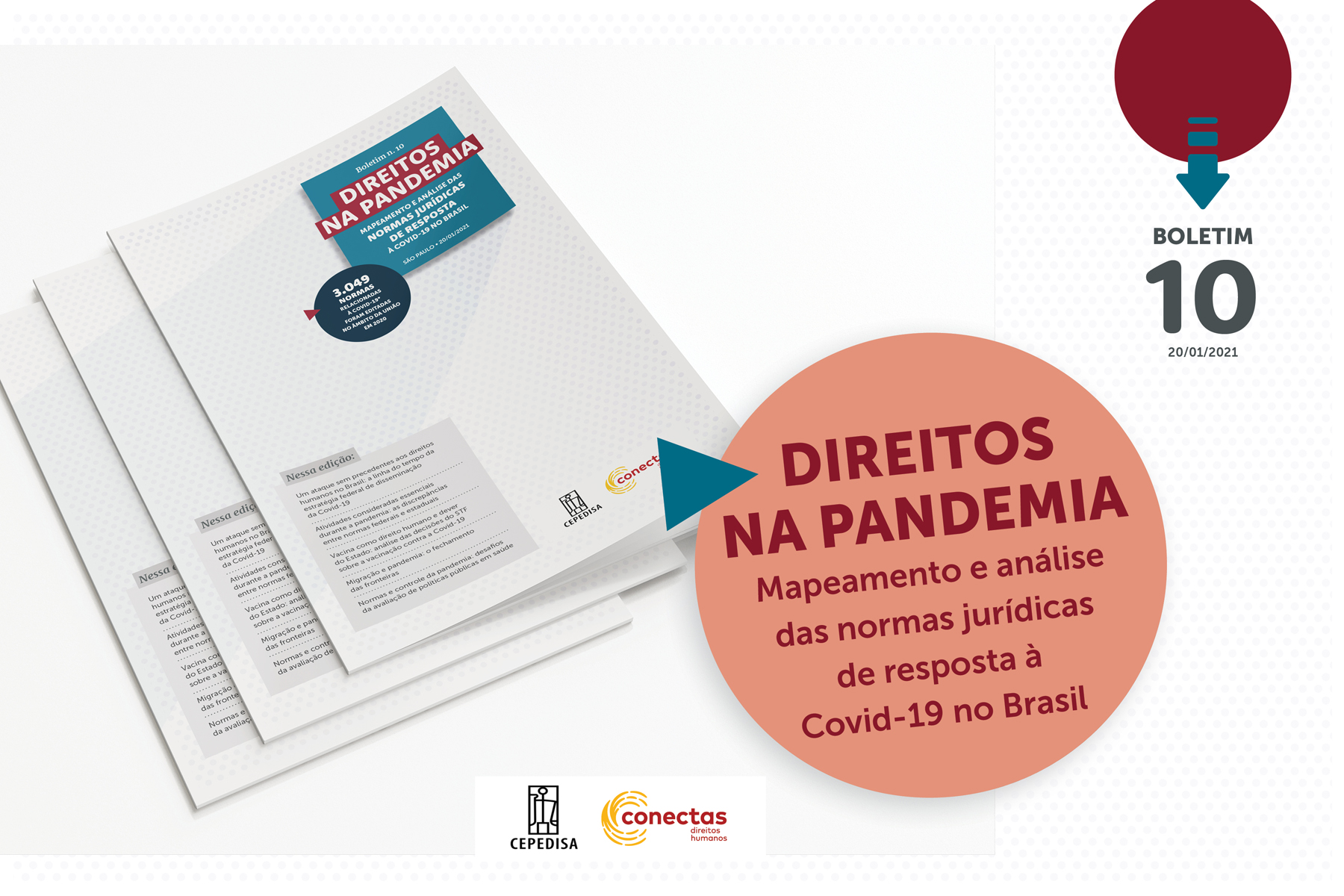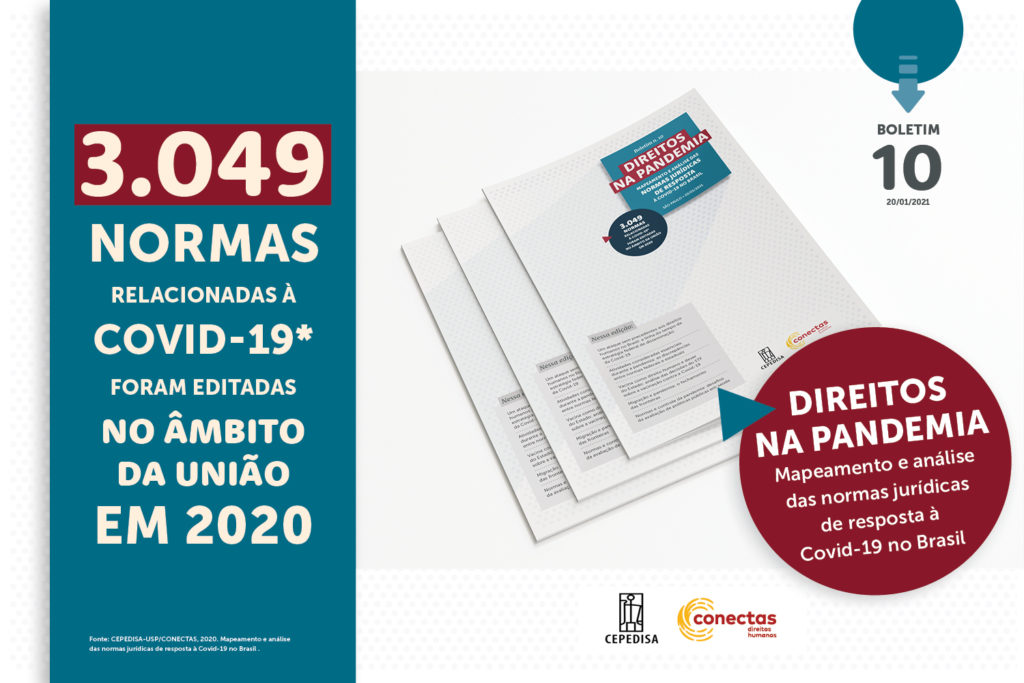New study: Brazilian federal government blocked measures against Covid-19
Research systematizes propaganda actions against public health and obstructs local responses against the disease

On Thursday (21) the 10th edition of the Bulletin Rights in Pandemia was published, an initiative of Cepedisa (Center for Studies and Research on Sanitary Law at the University of São Paulo), in partnership with Conectas Human Rights. The research points out the commitment of the Union’s action in favor of the resumption of economic activity as soon as possible and at any cost.
The study data were produced during the year 2020, when 3,049 federal norms and 4,427 state norms related to Covid-19 were observed in order to assess its impact on human rights.
“The more than 200 thousand deaths, most of which are preventable through adequate investments, constitute an unprecedented violation of the right to life and the right to health of Brazilians, among other rights”, points out Deisy Ventura, researcher at Cepedisa and professor at USP Public Health Faculty.

Timeline
The survey draws a timeline with three axes in chronological order: normative acts of the Union, including the edition of rules by federal authorities and bodies and presidential vetoes; acts of obstruction to the responses of state and municipal governments to the pandemic; and propaganda against public health.
In the study, researchers define this last item as the political discourse that mobilizes economic, ideological and moral arguments, in addition to false news and technical information without scientific evidence, with the purpose of discrediting health authorities, weakening popular adherence to health recommendations based on on scientific evidence, and to promote political activism against the public health measures needed to stem the Covid-19 advance.
The publication also maps controversial pronouncements by Bolsonaro that, while heating up the debates on social networks, drowned out the repercussions of official measures that weakened public health policies aimed at protecting and fighting the pandemic.
This is a non-exhaustive mapping. The events were selected from a collection from the database on the Rights in Pandemia project, court jurisprudence, documents, official speeches and search on Internet platforms.
Essential activities and other actions
Among the actions adopted by the government and identified by the study as responsible for the spread of the virus in the population are successive federal decrees to expand as much as possible the definition of essential activities that could remain open during the lockdown.
Among the most controversial are religious activities of any nature, beauty salons and barbershops, and gyms and fitness studios.
However, a ruling by the Supreme Court determined that state and municipal governments can set their own Covid-19 restrictions. An analysis of dozens of state-level regulations found that less than half of governors accepted the new definition of essential activities recommended by the federal government.
Other actions taken by the Bolsonaro government to spread the pandemic were: exempting public officials from civil and administrative liability for acts or omissions when tackling the pandemic; vetoing emergency income support (of 600 reals per month) for people such as fishermen, taxi drivers, app drivers, etc; not transferring to states and municipalities more than 8 million reals earmarked to combat the pandemic; encouraging people to break into field hospitals; delaying and boycotting the release of data on cases and deaths from Covid-19; vetoing the obligation to wear masks in stores, businesses and places of worship; and vetoing measures to protect indigenous communities.
The study also identifies the federal government’s refusal to accept Pfizer’s proposal to receive the first batch of vaccines on December 20, 2020 and the rejection of at least 20,000 PCR test kits from LG International.


